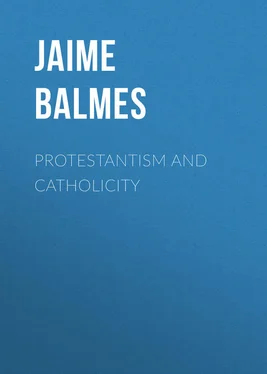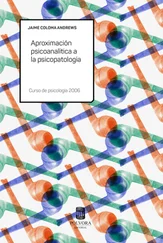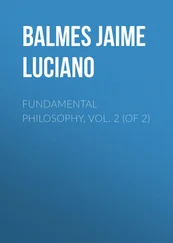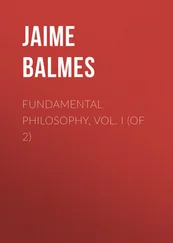Jaime Balmes - Protestantism and Catholicity
Здесь есть возможность читать онлайн «Jaime Balmes - Protestantism and Catholicity» — ознакомительный отрывок электронной книги совершенно бесплатно, а после прочтения отрывка купить полную версию. В некоторых случаях можно слушать аудио, скачать через торрент в формате fb2 и присутствует краткое содержание. Жанр: foreign_antique, foreign_prose, на английском языке. Описание произведения, (предисловие) а так же отзывы посетителей доступны на портале библиотеки ЛибКат.
- Название:Protestantism and Catholicity
- Автор:
- Жанр:
- Год:неизвестен
- ISBN:нет данных
- Рейтинг книги:3 / 5. Голосов: 1
-
Избранное:Добавить в избранное
- Отзывы:
-
Ваша оценка:
- 60
- 1
- 2
- 3
- 4
- 5
Protestantism and Catholicity: краткое содержание, описание и аннотация
Предлагаем к чтению аннотацию, описание, краткое содержание или предисловие (зависит от того, что написал сам автор книги «Protestantism and Catholicity»). Если вы не нашли необходимую информацию о книге — напишите в комментариях, мы постараемся отыскать её.
Protestantism and Catholicity — читать онлайн ознакомительный отрывок
Ниже представлен текст книги, разбитый по страницам. Система сохранения места последней прочитанной страницы, позволяет с удобством читать онлайн бесплатно книгу «Protestantism and Catholicity», без необходимости каждый раз заново искать на чём Вы остановились. Поставьте закладку, и сможете в любой момент перейти на страницу, на которой закончили чтение.
Интервал:
Закладка:
Let us recapitulate what we have said; the essential principle of Protestantism is one of destruction; this is the cause of its incessant variations, of its dissolution and annihilation. As a particular religion it no longer exists, for it has no peculiar faith, no positive character, no government, nothing that is essential to form an existence; Protestantism is only a negative. If there is any thing to be found in it of a positive nature, it is nothing more than vestiges and ruins; all is without force, without action, without the spirit of life. It cannot show an edifice raised by its own hands; it cannot, like Catholicity, stand in the midst of its vast works and say, "These are mine." Protestantism can only sit down on a heap of ruins, and say with truth, "I have made this pile."
As long as sectarian fanaticism lasted, as long as this flame, enkindled by furious declamation, was kept alive by unhappy circumstances, Protestantism showed a certain degree of force, which, although it was not the sign of vigorous life, at least indicated the convulsive energy of delirium. But that period has passed, the action of time has dispersed the elements that fed the flame, and none of the attempts which have been made to give to the Reformation the character of a work of God, have been able to conceal the fact that it was the work of human passions. Let us not be deceived by the efforts which are now being made; what is acting under our eyes is not living Protestantism, it is the operation of false philosophy, perhaps of policy, sometimes of sordid interest disguised under the name of policy. Every one knows how powerful Protestantism was in exciting disturbances and causing disunion. It is on this account that evil-minded men search in the bed of this exhausted torrent for some remains of its impure waters, and knowing them to contain a deadly poison, present them to the unsuspecting in a golden cup.
But it is in vain for weak man to struggle against the arm of the Almighty, God will not abandon His work. Notwithstanding all his attempts to deface the work of God, man cannot blot out the eternal characters which distinguish truth from error. Truth in itself is strong and robust: as it is the ensemble of the relations which unite things together, it is strongly connected with them, and cannot be separated either by the efforts of man or by the revolution of time. Error, on the contrary, the lying image of the great ties which bind together the compact mass of the universe, stretches over its usurped domain like those dead branches of the forest which, devoid of sap, afford neither freshness nor verdure, and only serve to impede the advance of the traveller.
Confiding men, do not allow yourselves to be seduced by brilliant appearances, pompous discourse, or false activity. Truth is open, modest, without suspicion, because it is pure and strong; error is hypocritical and ostentatious, because it is false and weak. Truth resembles a woman of real beauty, who, conscious of her charms, despises the affectation of ornament; error, on the contrary, paints and ornaments herself, because she is ugly, without expression, without grace, without dignity. Perhaps you may be pleased with its laborious activity. Know, then, that it has no strength but when it is the rallying cry of a faction; then, indeed, it is rapid in action and fertile in violent measures. It is like the meteor which explodes and vanishes, leaving behind it nothing but darkness, death, and destruction; truth, on the contrary, like the sun, sends forth its bright and steady beams, fertilizes with its genial warmth, and sheds on every side life, joy, and beauty.
CHAPTER XII.
THE EFFECTS WHICH THE INTRODUCTION OF PROTESTANTISM INTO SPAIN WOULD HAVE PRODUCED
In order to judge of the real effect which the introduction of Protestant doctrines would have had in Spain, we shall do well, in the first place, to take a survey of the present state of religion in Europe. In spite of the confusion of ideas which is one of the prevailing characteristics of the age, it is undeniable that the spirit of infidelity and irreligion has lost much of its strength, and that where it still exists it has merged into indifference, instead of preserving its systematic form of the last century. With the lapse of time declamation ceases; men grow tired of continually repeating the same insulting language; their minds resist the intolerance and bad faith of sects; systems betray their emptiness, opinions their erroneousness, judgments their precipitation, and reasonings their want of exactitude. Time shows their counterfeit intentions, their deceptive statements, the littleness of their ideas, and the mischievousness of their projects; truth begins to recover its empire, things regain their real names, and, thanks to the new direction of the public mind, that which before was considered innocent and generous is now looked upon as criminal and vile. The deceitful masks are taken off, and falsehood is discovered surrounded by the discredit which ought always to have accompanied it.
Irreligious ideas, like all those which are prevalent in an advanced state of society, would not, and could not be confined to mere speculation; they invaded the domain of practice, and labored to gain the upper hand in all branches of administration and politics. But the revolution which they produced in society became fatal to themselves; for there is nothing which better exposes the faults and errors of a system, and undeceives men on the subject, than the touchstone of experience. There is in our minds a certain power of viewing an object under a variety of aspects, and an unfortunate aptitude for supporting the most extravagant proposition by a multitude of sophisms. In mere disputation, it is difficult for the most reasoning minds to keep clear of the snares of sophistry. But when we come to experience, it is otherwise; the mind is silent, and facts speak; and if the experience has been on a large scale, and applied to objects of great interest and importance, it is difficult for the most specious arguments to counteract the convincing eloquence of the result. Hence it is that a man of much experience obtains an instinct so sure and delicate, that when a system is but explained he can point out all its inconveniences. Inexperience, presumptuous and prejudiced, appeals to argument in support of its doctrines; but good sense, that precious and inestimable quality, shakes its head, shrugs its shoulders, and with a tranquil smile leaves its prediction to be tested by time.
It is not necessary now to insist on the practical results of those doctrines of which infidelity was the motto; we have said enough on that subject. Suffice it to say, that those same men who seem to belong to the last century by their principles, interests, recollections, or for other reasons, have been obliged to modify their doctrines, to limit their principles, to palliate their propositions, to cool the warmth and passion of their invectives; and when they wish to give a mark of their esteem and veneration for those writers who were the delight of their youth, they are compelled to declare "that those men were great philosophers, but philosophers of the cabinet;" as if in reality what they call the knowledge of the cabinet was not the most dangerous ignorance.
It is certain that these attempts have had the effect of throwing discredit on irreligion as a system. If people do not regard it with horror, at least they look upon it with mistrust. Irreligion has labored in all the branches of science, in the vain hope that the heavens would cease to relate the glories of God, that the earth would disown Him who laid its foundations, and that all nature would give testimony against the Lord who gave it existence and life. These same labors have banished the scandalous division which had begun between religion and science; so that the ancient accents of the man of Hus have again resounded, without dishonor to science, in the mouths of men in the nineteenth century; and what shall we say of the triumphs of religion in all that is noble, tender, and sublime on earth? How grand are the operations of Providence displayed therein! Admirable dispensation! The mysterious hand which governs the universe seems to hold in reserve for every great crisis of society an extraordinary man. At the proper moment this man presents himself; he advances, himself ignorant whither he is going, but he advances with a firm step towards the accomplishment of the high mission for which Providence has destined him.
Читать дальшеИнтервал:
Закладка:
Похожие книги на «Protestantism and Catholicity»
Представляем Вашему вниманию похожие книги на «Protestantism and Catholicity» списком для выбора. Мы отобрали схожую по названию и смыслу литературу в надежде предоставить читателям больше вариантов отыскать новые, интересные, ещё непрочитанные произведения.
Обсуждение, отзывы о книге «Protestantism and Catholicity» и просто собственные мнения читателей. Оставьте ваши комментарии, напишите, что Вы думаете о произведении, его смысле или главных героях. Укажите что конкретно понравилось, а что нет, и почему Вы так считаете.












